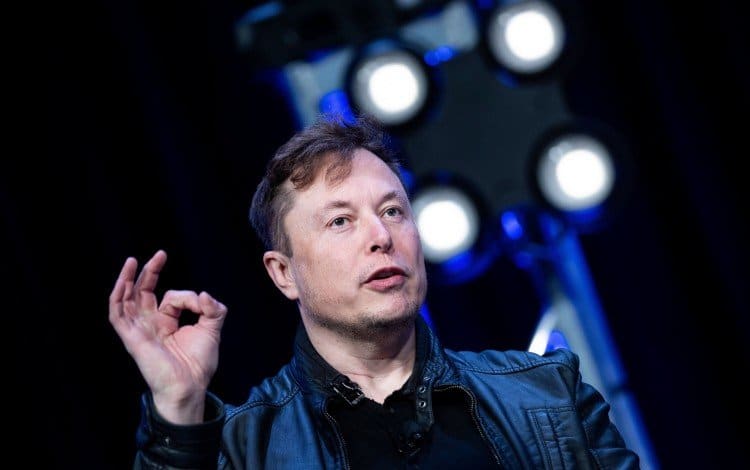
The technology allowing cars to drive themselves is not yet completely ready, but the war between the companies developing it has taken another turn with the breakthrough of artificial intelligence since November.
Elon Musk, CEO of Tesla (TSLA), however, believes that his company has a big lead over the competition. The billionaire entrepreneur, whose ambition is to turn the car into a living room on four wheels, thinks that Tesla has a weapon that no other competitor can match. That weapon is Full Self Driving (FSD), Tesla's advanced driver assistance system.
FSD is a $15,000 feature in North America and a major source of revenue for Tesla.
In addition to capabilities like assisting the car with steering, accelerating and emergency braking to avoid other vehicles and pedestrians within its lane, collision warning and blind-spot monitoring offered by the classic driver assistance systems Autopilot and Enhanced Autopilot, FSD, for instance, identifies stop signs and traffic lights and automatically slows the car to a stop on approach, Tesla says.
But the advanced feature doesn't make Tesla cars autonomous.
Tesla FSD vs. Waymo
FSD, which is under investigation by U.S. regulators for its involvement in numerous incidents, "require[s] active driver supervision and do[es] not make the vehicle autonomous," the Austin, Texas-based automaker warns. "Full autonomy will be dependent on achieving reliability far in excess of human drivers, as demonstrated by billions of miles of experience, as well as regulatory approval, which may take longer in some jurisdictions."
However, Musk believes that FSD is more advanced than technologies offered by competitors such as Cruise, the autonomous vehicle subsidiary of General Motors (GM), and Waymo (GOOGL). The latter, which belongs to Google, has just become the target of the latest criticism from the tech mogul who finds its technology limited.
For Musk, Google's self-driving cars can only drive in cities -- San Francisco, California and Phoenix, Arizona -- where they have been trained with the help of tightly-mapped streets. Once out of this environment, Waymo vehicles can't really manage, because they can't handle unanticipated situations, obstacles and the like.
While Google does not agree, the billionaire challenged the internet giant to test-drive its cars outside of San Francisco. He launched the challenge during a Twitter thread, after YouTuber "Whole Mars Catalog" posted a message in which they said that they recorded a test asking a Waymo car and a Tesla car, with FSD enabled, to drive the same route in San Francisco.
In the video of the experiment posted on YouTube, the YouTuber says that the Tesla was able to complete the trip with just cameras and computer vision and didn’t need LiDAR, HD maps, or the extra hardware that Waymo has. The Tesla car, however, took longer than the Waymo car to make the trip.
'Now Drive Outside SF'
"Just recorded a Waymo and FSD Beta driving the same route," the YouTuber said on Jun. 14.
"Now drive outside SF," Musk commented the same day.
"Hahaha or even some parts of SF… can’t go to Twitter HQ for example," the YouTuber responded.
Waymo didn't immediately respond to a request for comment.
The challenge to Google comes just days after Musk mocked Cruise's autonomous technology.
"Yeah, extremely brittle to local conditions & doesn’t scale," the billionaire said about Cruise's autonomous technology on Jun. 4, after a video on social media showed a Cruise-developed self-driving vehicle that had stopped in the middle of a street, because construction barriers were blocking its path.
Musk implied that GM's Cruise had failed to anticipate the complexity of the task. In essence, the car should not have failed when faced with something as simple as a road closed due to construction.
For Musk, companies should produce a comprehensive solution to self driving that works anywhere.
"Google is unable to produce a generalized solution to self driving that works anywhere. They've been trying to get for a long time. They've been unsuccessful," the billionaire told CNBC during an interview last month. "Tesla basically has that and it's far more advanced than Google."
During the same interview, Musk said that Tesla cars could be fully autonomous as early as this year.
"Tesla will have sort of a ChatGPT moment, maybe if not this year, I'd say no later than next year," the tech mogul asserted, referring to the conversational chatbot that has become the face of the progress made by artificial intelligence. "Three million cars will drive themselves with no one. And then 5 million cars and then 10 million cars.







